Marine Le Pen, Deputy of the French National Assembly, delivered a blistering speech diagnosing what she called a national crisis: France has become “the sick man of Europe.” Speaking with urgency, she laid out a case of democratic decay, economic decline, and a list of four “taboos” that, in her view, must be broken to restore France’s prosperity and sovereignty.
Key takeaways
- Le Pen argues France faces democratic asphyxiation and economic stagnation under the current leadership.
- She identifies four priority areas—immigration, toxic public spending, EU contributions, and fraud—to unlock tens of billions in persistent savings.
- Her proposals emphasize redirecting existing public expenditures and recovering lost revenue rather than increasing burdens on workers, businesses, or retirees.
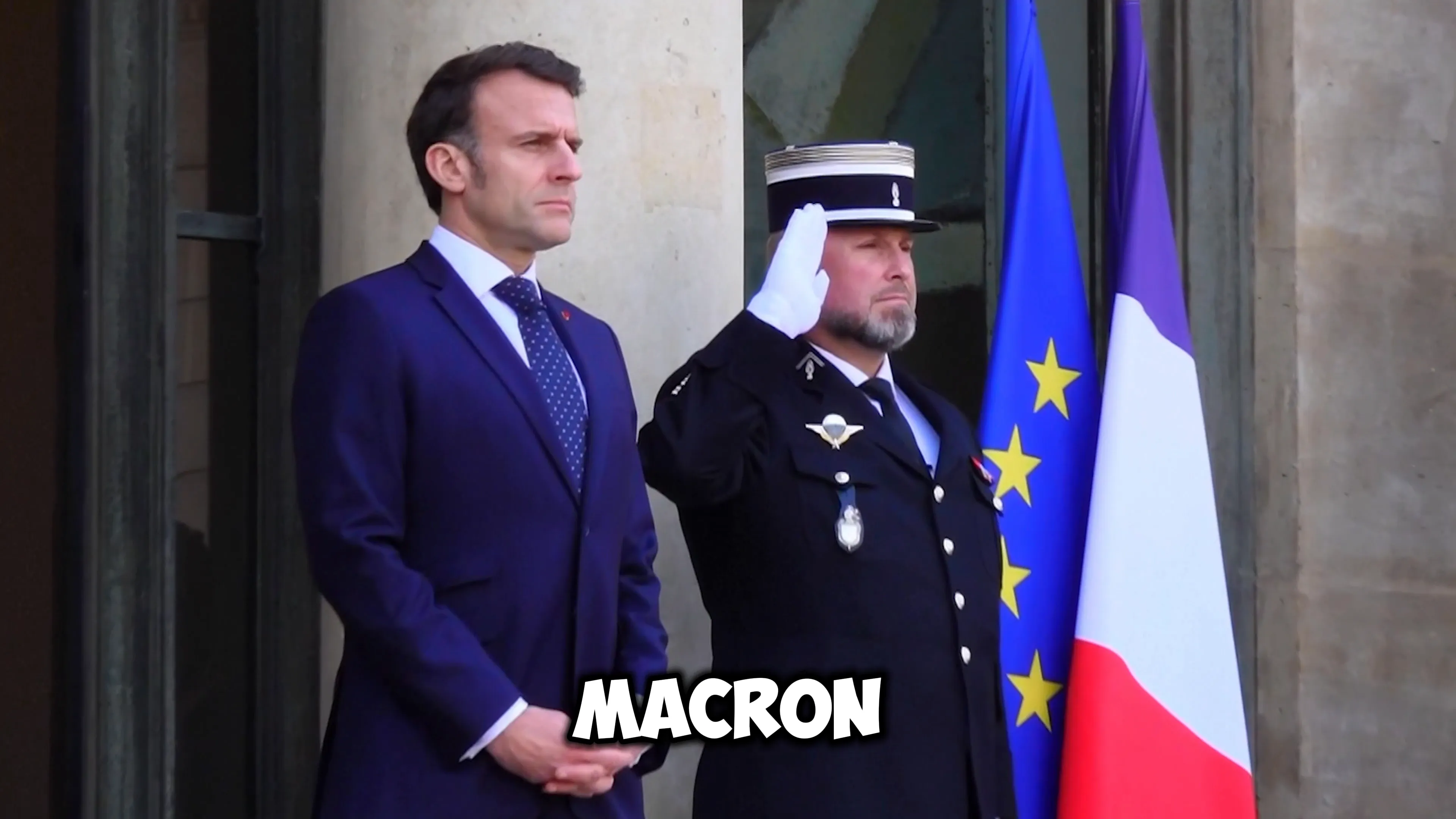
Democratic asphyxiation: the political diagnosis
Le Pen framed the situation as more than economic: she described a state of “democratic asphyxiation.” According to her, the political choices made since 2017—anchored in the presidency of Emmanuel Macron and his allies—have weakened institutions, eroded popular sovereignty, and left citizens feeling anger and despair.
“France is in a state of democratic distress… It is our duty to restore to them their hope, their confidence, and their pride.”
As a reporter, it’s important to note that this diagnosis mixes political critique with concrete economic claims: Le Pen ties institutional weakness directly to slowed investment, factory closures, rising bankruptcies, and declining living standards.
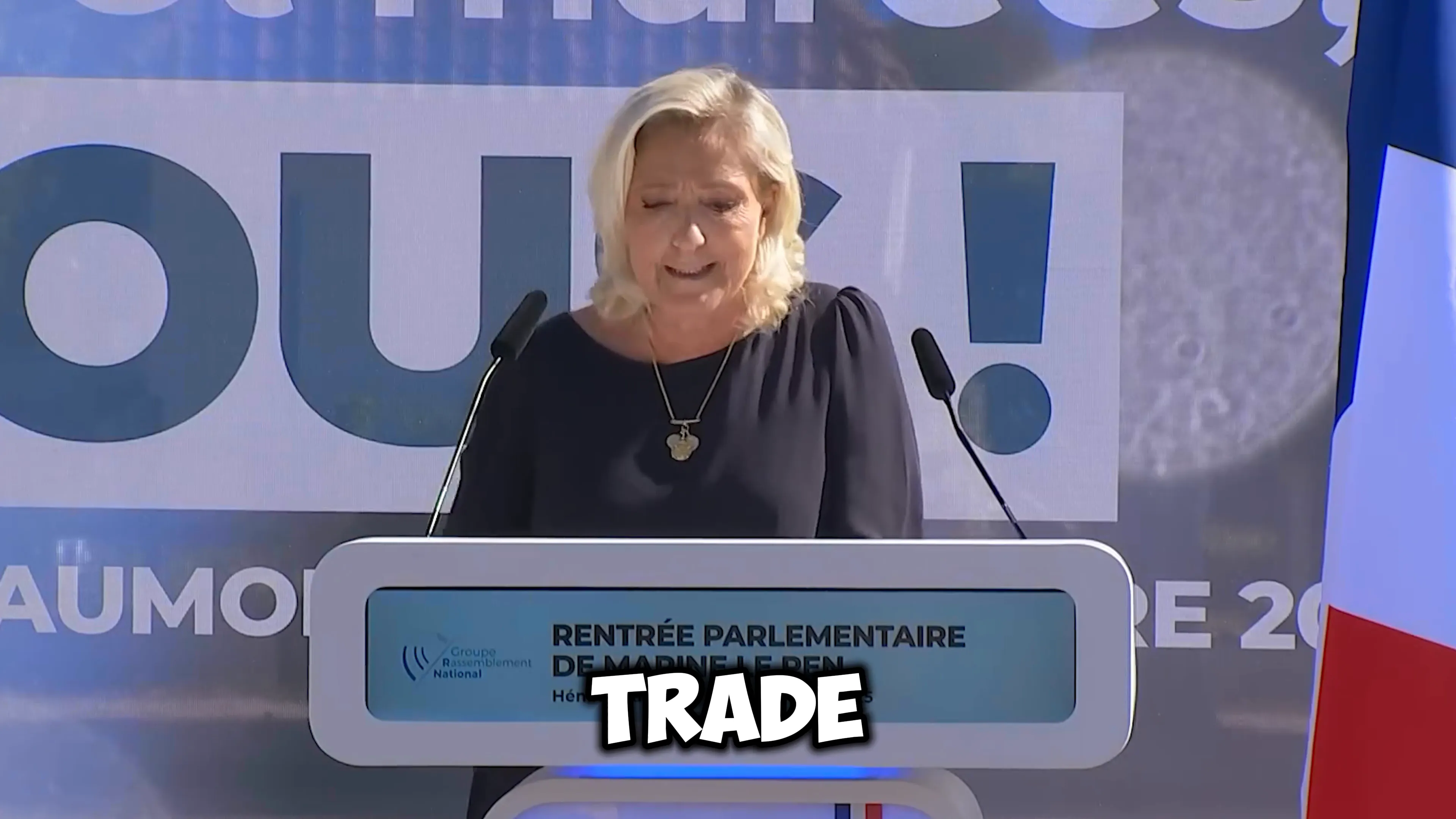
Economic picture: taxation, debt and daily hardship
Le Pen presented a stark economic snapshot. She repeated a central statistic: compulsory levies in France amount to nearly 45% of GDP, which, she argues, suffocates investment, consumption, and growth. She described a society where essentials—healthcare, heating, food—are increasingly treated as luxuries by many households.
She also warned that public finances are on an unsustainable trajectory: rising debt and interest rates comparable to, or higher than, countries like Italy and Greece. The result, she said, is an “economic quagmire” that discourages businesses and deepens social precariousness.
The national emergency and the call for a change of government
Le Pen called the situation a national emergency that requires an immediate change of government and a clear recovery plan for millions of French people. Her rhetoric combined alarm—”the world’s seventh power at the bottom of international rankings”—with a pledge to restore hope and pride.

The four taboos to break — a roadmap of fiscal and policy priorities
At the heart of Le Pen’s address is a policy roadmap built around four “taboos” she believes the government must confront. She repeatedly emphasized the refrain: “This is the money we must go after, not that of the French.”

1. Immigration
Le Pen argued that migration-related costs run into several tens of billions of euros annually. She put specific figures on the problem: roughly 500,000 foreigners arriving each year, many low-skilled or unskilled, with an employment rate she claimed to be near 10% among those groups. Costs cited include housing, education, training, healthcare and direct financial support.
She referenced a 2022 calculation she supports in which introducing minimum work-duration requirements for certain benefits could have produced around €20 billion in annual savings—before even accounting for GDP losses she attributes to large-scale arrivals.

2. Toxic public spending
Le Pen singled out public spending as the second taboo. She presented a counter-budget claiming a quick potential saving of €4 billion by trimming state agencies and operators deemed redundant.
She strongly criticized subsidies for intermittent renewable energy, citing €6 billion paid this year and a planned €8 billion next year to support solar and wind schemes—money she says should be redirected elsewhere.

3. France’s contribution to the European Union
Le Pen attacked the sharp rise in France’s net contribution to the EU, which she says has tripled in eight years and now exceeds €10 billion. She warned of further planned increases—+€6 billion in 2026 and +€3 billion in 2027—and lamented that no government has seriously considered suspending those hikes.
She framed Europeanism as “a true religion,” arguing that questioning EU policy or the Commission led by Ursula von der Leyen is treated as blasphemy, even as she pointed to trade deals (Mercosur, the EU-US “Selera” agreement) she considers betrayals of French interests.
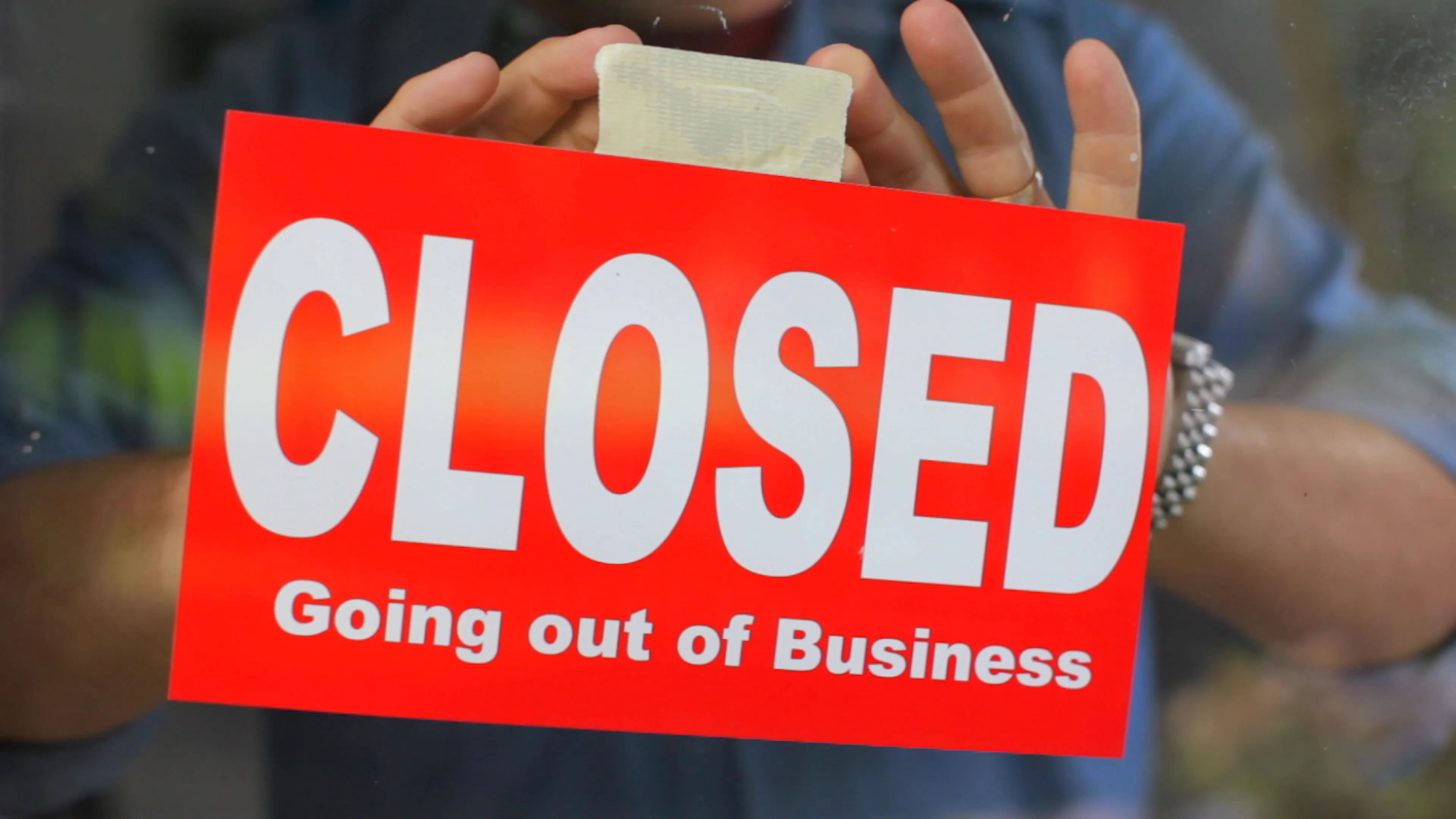
4. The fight against fraud
Le Pen placed strong emphasis on fraud as the fourth taboo. She cited a documented, quantified plan claiming the recovery of more than €15 billion per year by cracking down on undeclared work, VAT fraud, social fraud, import-related fraud (notably food), collusion, and financial-sector evasions.
She even accused elements within the Ministry of Economy of complicity in schemes such as “cum-cum” tax arrangements and argued that France needs a dedicated, FBI-like institution to investigate and prosecute organized fraud.
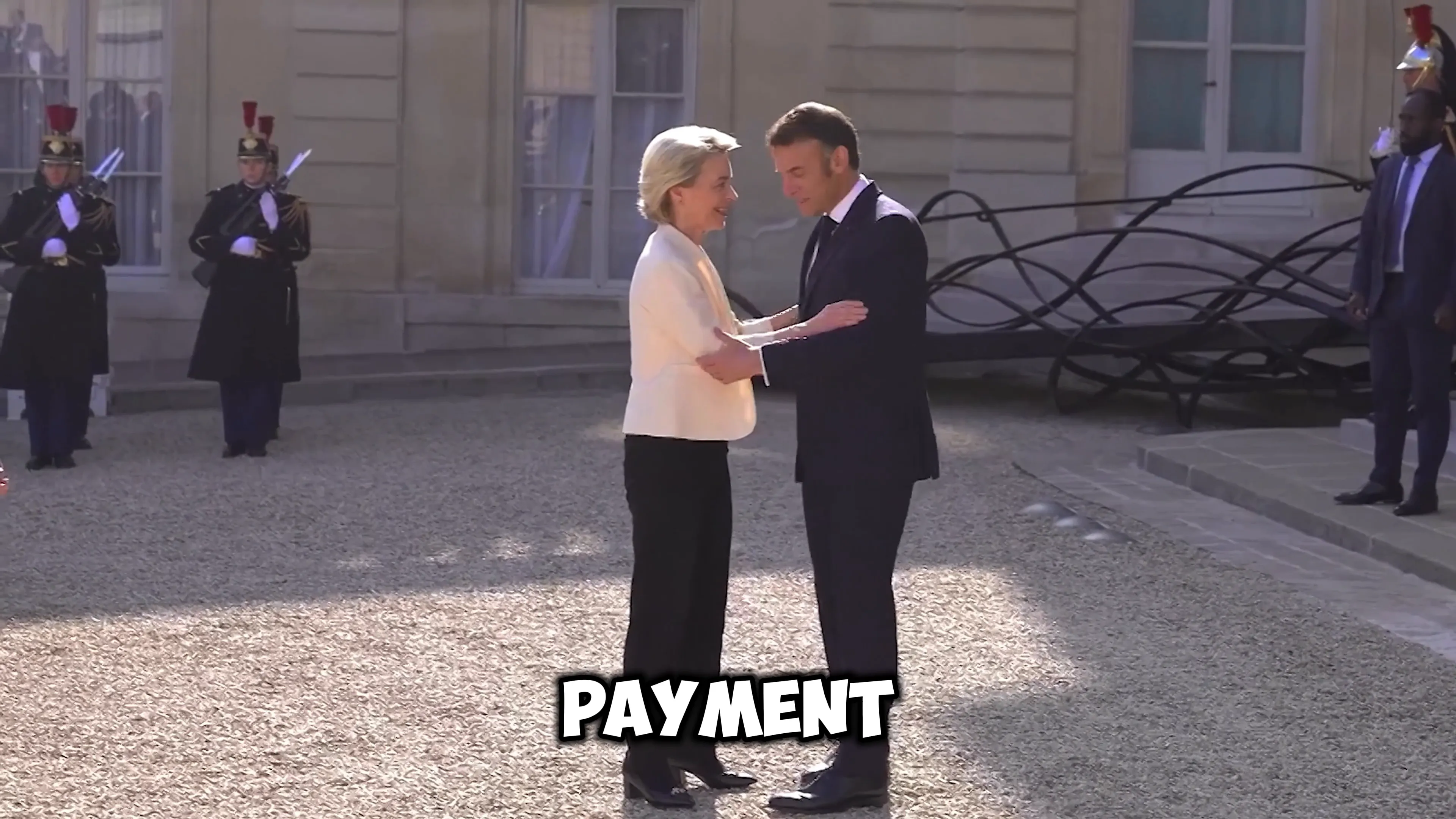
What Le Pen proposes in practice
Across the four taboos, Le Pen’s proposals fall into two broad categories:
- Recover lost or misdirected public funds (fraud recovery, suspending some EU transfers, trimming agencies).
- Restrict spending growth and shift priorities (cut subsidies deemed wasteful, reform migration benefits).
She repeatedly insists these measures would secure “tens of billions in annual and structural savings” without “robbing businesses, employees, or retirees.”
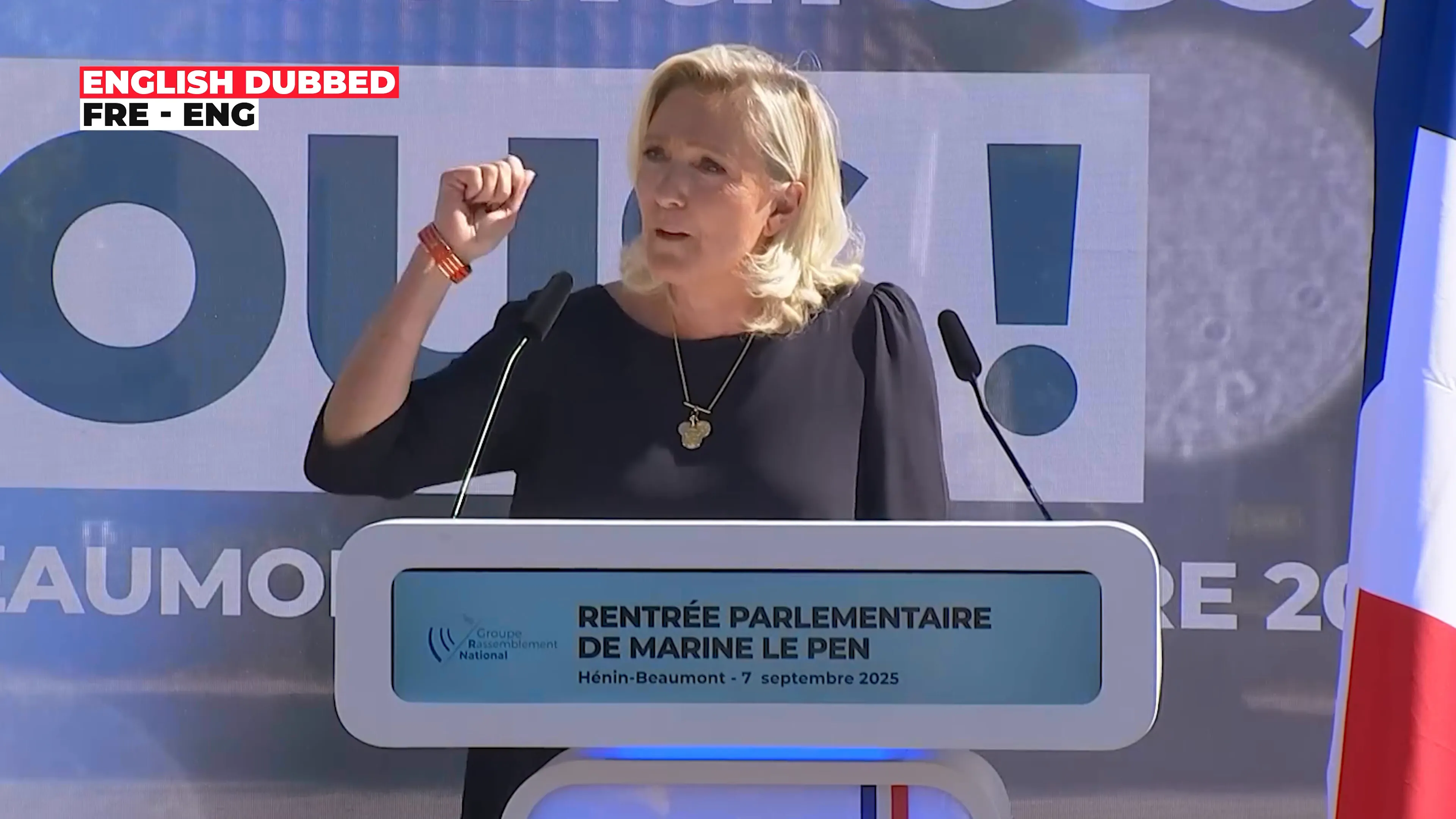
Final appeal and political promise
Le Pen closed with a rallying call: “Dear compatriots, lift up your hearts. We have a country to rebuild.” She pledged sustained effort from herself and her deputies (naming Jordan among them) and promised to pursue a change of government and the recovery path she outlined “without wavering and without weakness, until victory.”
Reporter’s notes and context
As a political reporter summarizing this address, a few contextual points are relevant:
- Le Pen’s numbers and causal claims (e.g., employment rates among recent arrivals, precise savings from policy measures) reflect political argumentation and should be cross-checked against independent economic studies and government statistics for policy evaluation.
- Her proposals emphasize fiscal reallocation and enforcement rather than new taxes on the French—a rhetorical strategy aimed at shifting the burden away from citizens and businesses.
- The language of “democratic asphyxiation” and “national emergency” frames her platform in existential terms, positioning her movement as both a corrective and a guardian of national sovereignty.

Conclusion
Marine Le Pen’s speech is a concentrated political manifesto: it mixes forceful rhetoric about democratic decline with a detailed fiscal agenda centered on four priorities—immigration policy, trimming public spending (including specific criticisms of renewable subsidies), re-evaluating EU contributions, and an aggressive anti-fraud campaign. Whether voters accept her diagnosis or her remedies will depend on how convincing independent verification of her figures and claims proves to be, and on political debate over the trade-offs involved in her proposed measures.
Vive la République. Vive la France.
